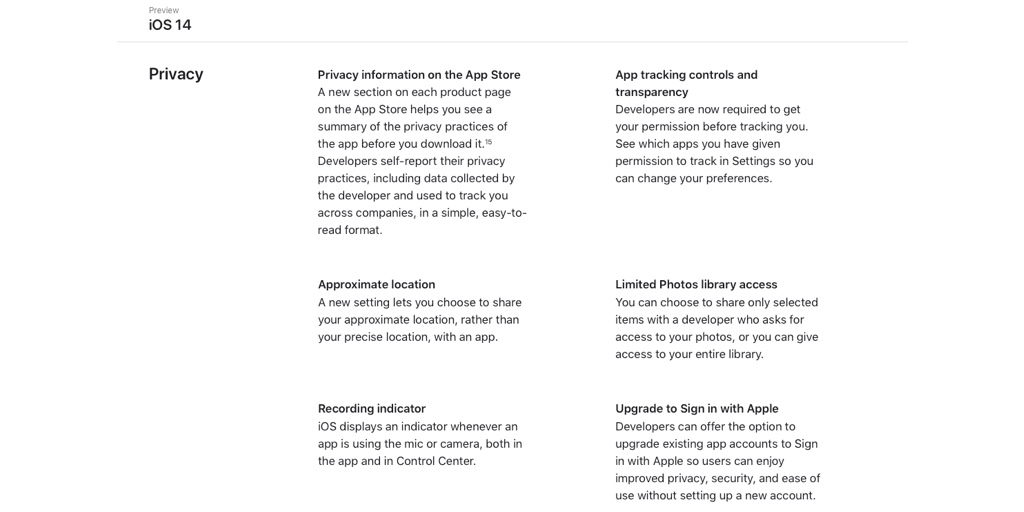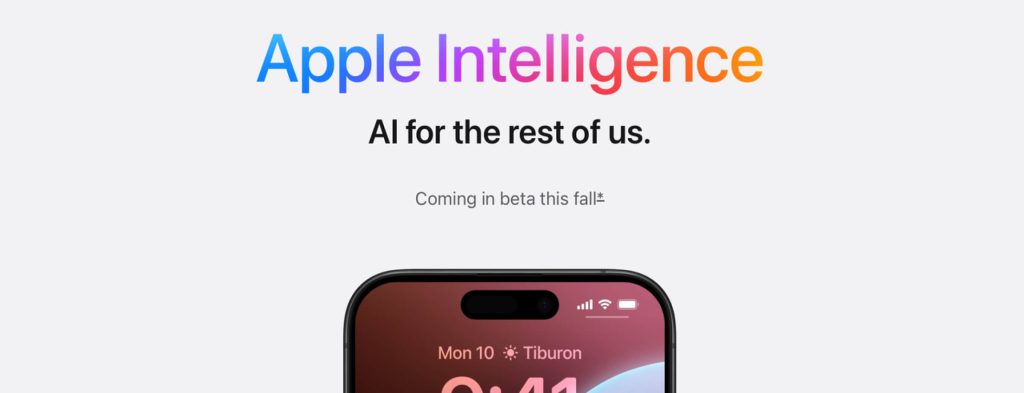The internet runs on advertising. That’s how most websites are able to give content away for free. It’s also how many apps are funded. So whenever a new technology or regulatory policy comes along that disrupts the flow of data to advertisers, a lot of people get concerned.
During the last few years, most industry worries have focused on the growth of ad blockers connected to web browsers. Some function as add-ons while others are fully-operational browsers. Even the most popular ones, including Chrome, Safari and Firefox, have started including more options for users to avoid ads and reduce the amount of personal data that is collected.
Now the industry is facing another problem: Apple is making it easier for iOS 14 users to block apps from collecting their data.
Until now, apps in iOS could collect much more data than what was possible in browsers, and most users seemed to either not care or be unaware what was happening. How users will react to the update is yet to be seen, but developers and advertisers are expecting what’s now a raging river of data to slow to a trickle.
In this blog post, we’ll take a look at the changes and how this will affect the advertising industry and mobile app developers.
Table of Contents
What’s in The iOS 14 User Privacy Control Update
Why More User Privacy Control Matters?
How This Will Affect The Advertising Industry?
How This Will Affect Mobile App Developers?
How Blue Whale Apps Can Help To Navigate The iOS Privacy Update?
What’s in The iOS 14 User Privacy Control Update
The primary change is a privacy option called Limit Ad Tracking (LAT) is now becoming a notification. In previous versions of iOS, it was buried in the Settings controls. Now, when an app wants to connect personal data to third-party tracking services, the user will get the following message:
“[App Name] would like to track you across apps and websites owned by other companies. Your data will be used to deliver personalized ads to you.”
The user is then provided two choices: Allow Tracking or Ask App Not To Track.
![]()
Based on all the bad news about data breaches and identity theft, it’s safe to presume a lot of people will choose not to share their information.
On the backend, this process is governed by Apple’s Identifier for Advertisers (IDAF). Apple’s policy instructs developers the IDAF can only be used for three reasons: (1) to serve ads in an app, (2) to document an app was installed based on an ad click, and (3) to link an action taken within an app to a previously served ad.
Using the IDAF to connect user identity and behaviors to third-party data collection networks is not allowed. Apple has already taken action against apps that don’t serve ads, but instead use the IDAF for tracking purposes.
The new privacy update will make using the IDAF even more difficult for developers. Instead of Apple taking action against apps using it improperly, most users will now entirely opt-out from data collection.
Singular, a mobile measurement platform (MMP), released some research on the ad opt-out rates for iOS and Android devices:
![]()
The release of iOS 14 will bring with it a number of new changes that will strengthen user privacy and security:

Why More User Privacy Control Matters?
As more users decide not to share this information, it will become difficult for advertising networks and app developers to show how ad campaigns lead to app installs and product purchases. User data for millions of devices will go dark.
While that’s a big win for Apple device owners, it’s a big loss for the ad networks and the developers. And most likely, it will cause these groups to focus more of their efforts on the Android platform, which has an identifier similar to IDAF called Google Advertising Identifier (GAID). It doesn’t have an opt-out that sounds as scary as the one being introduced in iOS 14.
Apple doesn’t have a large ad-based network, so none of these changes will affect it. In fact, this allows the company to further position itself as a privacy advocate and a place of refuge from the likes of Google, Amazon and Facebook.
Whether or not Apple’s emphasis on user privacy will negatively affect development on the platform is anybody’s guess right now, but app developers that rely on ad revenue are definitely going to have a difficult time collecting click-data.
How This Will Affect The Advertising Industry?
A big loser from the iOS privacy update will be Facebook. It’s advertising network relies on highly-targeted user data, which will dry up from iOS devices. The other large third-party ad networks will be affected as well.
Another casualty will be businesses that rely on retargeting campaigns to find new customers. Again, a large portion of iOS users are going to go dark, which is what no one wants to happen, because they spend more on apps than Android users. A large, valuable audience for these businesses is going to be difficult to reach. All of this points to more ad dollars being spent where they can be tracked, which will not be on Apple’s devices.
How This Will Affect Mobile App Developers?
When you combine less ability to track ads with less interest from ad networks, it spells disaster for mobile app developers that rely on this extra source of income. The number of free apps that continue to get updated and released will go down as more of these developers focus on the Android platform. But that doesn’t mean they’ll abandon iOS. You should expect to see a larger focus among developers on paid apps, which it seems is what Apple would prefer they do anyway.
It may also lead to higher app prices in the App Store. If developers are losing a major source of revenue, it has to be made up somewhere, which will either be in higher app prices or more work aimed at Android devices.
Blue Whale Apps Can Help Navigate The iOS Privacy Update
Blue Whale Apps can guide you through what app permissions are necessary, in addition to how best to balance privacy and data collection. Our team can handle all parts of the process, from reviewing where you are now, to making and implementing a plan for where you want to go. We specialize in end-to-end development for Fortune 1000 businesses and government agencies, including consulting, branding, UX design and hand-crafted code.
Recent projects have included apps within the healthcare, technology, public utilities, entertainment, retail, consumer products and automotive industries. And last year, Blue Whale Apps was named the #1 Mobile App Developers by AppFutura, Clutch, and Good Firms in 2019.
Calls for increased online privacy have progressively become louder the last few years, with no signs of slowing down. Get in touch with Blue Whale Apps to build an app that uses the best privacy practices while also accomplishing your intended goals.
Blue Whale Apps Development Services For Tech Companies
Do you want to build Ad-Tech platform or develop one from scratch, our full-service Blue Whale Apps teams can help you plan, design, develop, and maintain high-performance advertising technology.








